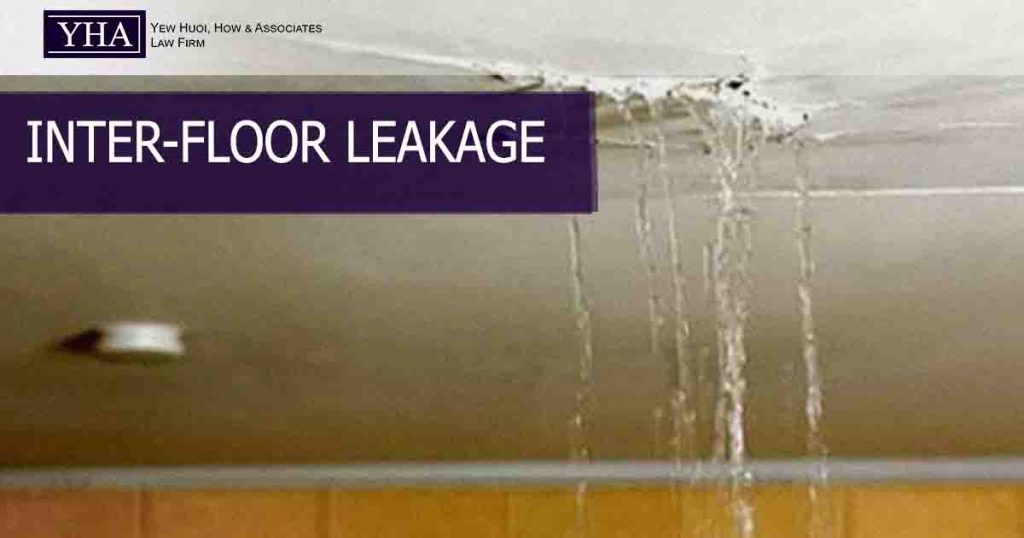In Brief
Inter-Floor leakage is one of the common complaints received by strata building proprietors. Inter-floor leakage occurs when there is evidence of dampness, moisture or water penetration on the ceiling or any furnishing material that is attached, glued, laid or applied to the ceiling that forms part of the interior of a parcel, common property or limited common property depending on the case.
Q:
Who is responsible when inter-floor leakage occurs in your unit?
A: If the defects happen within the Defect Liability Period (DLP) or within 24 months upon vacant possession, the responsibility is upon the developer. This is covered by the provisions of the Sale and Purchase Agreement (SPA). If there is a leak on the ceiling, it is believed to come from the unit above until it is proven otherwise under Section 142 of the Strata Management Act 2013 (SMA).
Q: How do you deal with inter-floor leaking in your condominium?
A: Firstly, the affected owners must give notice of the leakage (“the notice”) to the Developer, Joint Management Body, Management Corporation or subsidiary management corporation (collectively referred to as “Management”)
Management must conduct an examination within (7) days to determine the source of the leak and the person responsible. After the manager has completed the inspection, he must give a Certificate of Inspection (Form 28) within five days.
Q: What if the affected owner is not satisfied with the results of the inspection by the management?
A: If he/she is not satisfied, he/she may refer the matter to the Commissioner of building (COB) who shall then determine the cause of the leakage and the party responsible to rectify it by appointing a registered architect, engineer, quantity surveyor or building surveyor to assist him. The cost of appointment shall be borne by the party responsible to rectify the leakage.
Q: Does the building management have access to check and fix their property inter-floor leakage occurs? What happens if they refuse?
A: Owners shall give full access to the building management provided that (7) days of written notice is given to the parcel owner.
Any parcel owner who fails to give access to the building management to carry out inter-floor inspection or rectification is an offence and shall, on conviction, be liable to a fine not exceeding RM 50,000.00 or imprisonment for a term not exceeding 3 years or both.
Q: What if the responsible party failed or refused to carry out their responsibilities in line with the Strata Management (Maintenance and Management) Regulation 2015 (SMR)?
A: The affected parcel owner may commence civil proceedings in court or refer the matter to the Strata Management Tribunal.

